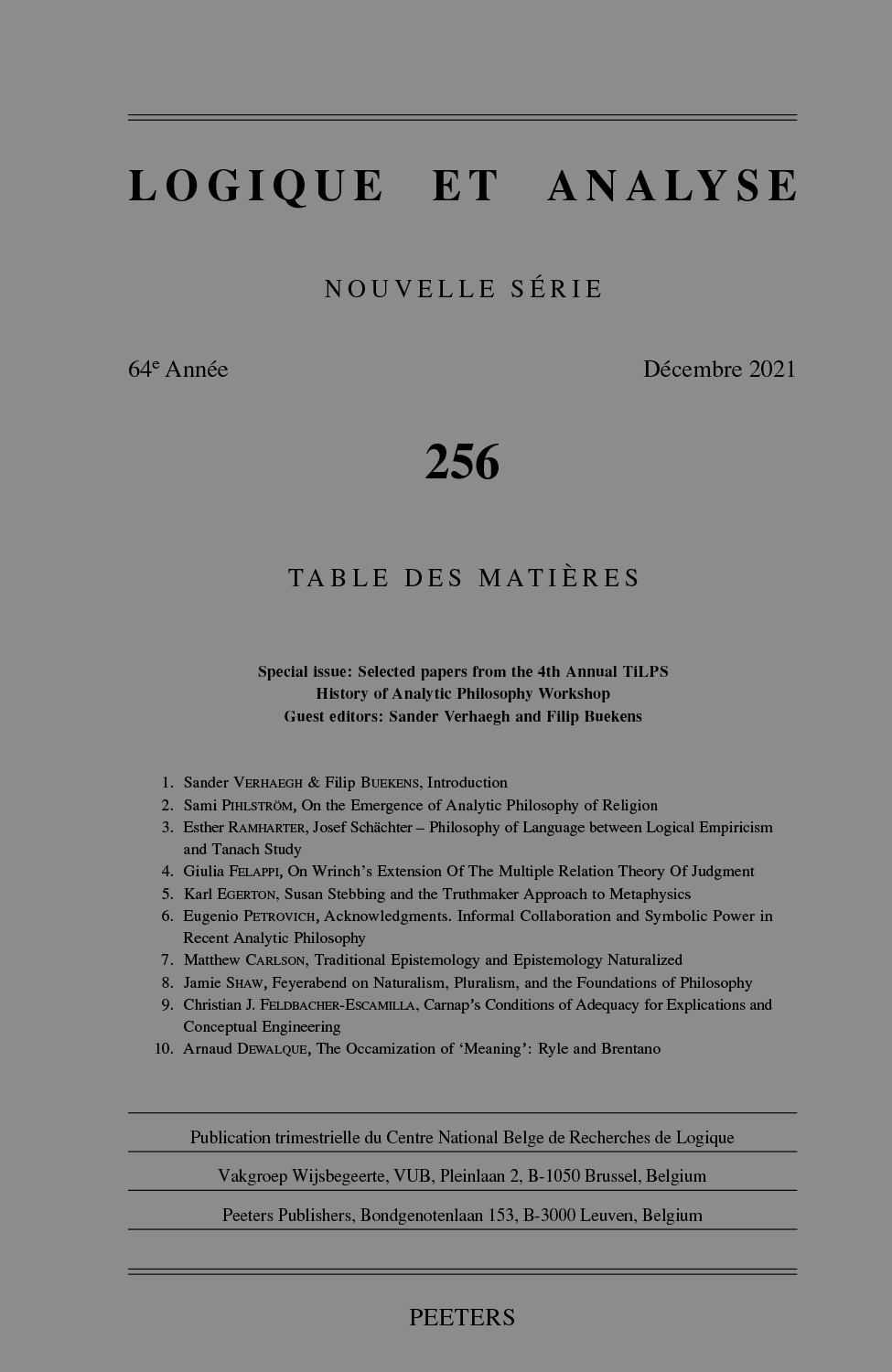 previous article in this issue previous article in this issue | next article in this issue  |

Preview first page |
Document Details : Title: Don't Plan for the Unexpected Subtitle: Planning Based on Plausibility Models Author(s): BIRKEGAARD ANDERSEN, Mikkel , BOLANDER, Thomas , HOLM JENSEN, Martin Journal: Logique et Analyse Volume: 230 Date: 2015 Pages: 145-176 DOI: 10.2143/LEA.230.0.3141807 Abstract : We present a framework for automated planning based on plausibility models, as well as algorithms for computing plans in this framework. Our plausibility models include postconditions, as ontic effects are essential for most planning purposes. The framework presented extends a previously developed framework based on dynamic epistemic logic (DEL), without plausibilities/beliefs. In the pure epistemic framework, one can distinguish between strong and weak epistemic plans for achieving some, possibly epistemic, goal. By taking all possible outcomes of actions into account, a strong plan guarantees that the agent achieves this goal. Conversely, a weak plan promises only the possibility of leading to the goal. In real-life planning scenarios where the planning agent is faced with a high degree of uncertainty and an almost endless number of possible exogenous events, strong epistemic planning is not computationally feasible. Weak epistemic planning is not satisfactory either, as there is no way to qualify which of two weak plans is more likely to lead to the goal. This seriously limits the practical uses of weak planning, as the planning agent might for instance always choose a plan that relies on serendipity. In the present paper we introduce a planning framework with the potential of overcoming the problems of both weak and strong epistemic planning. This framework is based on plausibility models, allowing us to define different types of plausibility planning. The simplest type of plausibility plan is one in which the goal will be achieved when all actions in the plan turn out to have the outcomes found most plausible by the agent. This covers many cases of everyday planning by human agents, where we — to limit our computational efforts — only plan for the most plausible outcomes of our actions. |
 |


